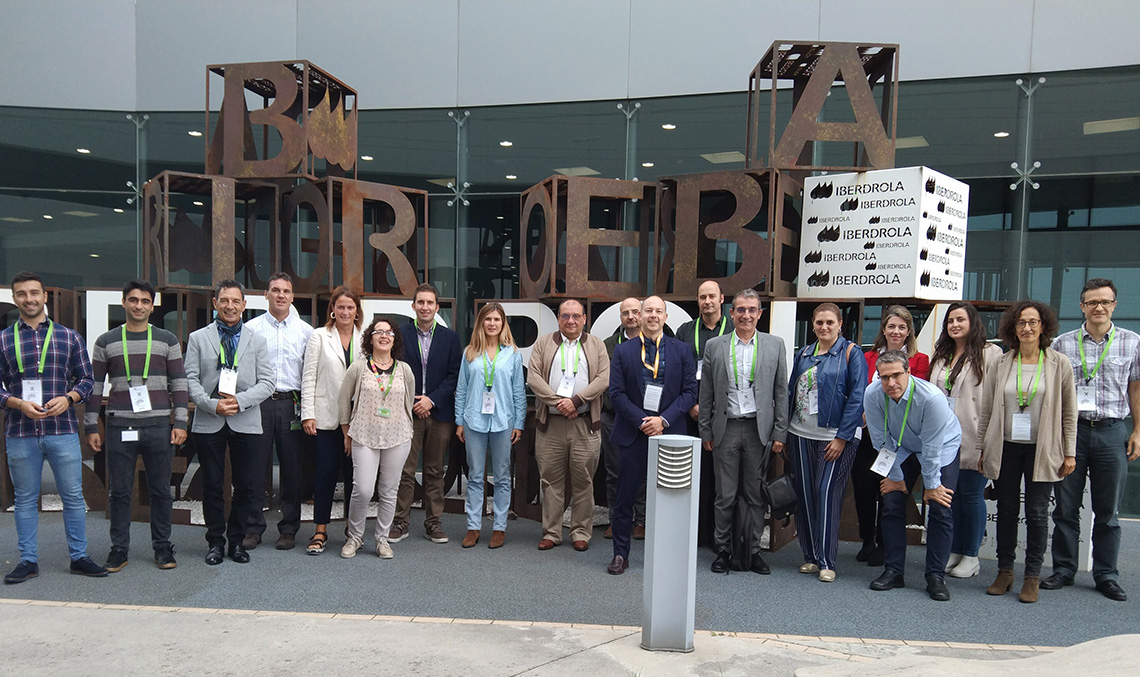Hydrogen refuelling stations: One of the key challenges in the hydrogen economy
Hydrogen refuelling stations are one of the critical elements in accelerating the deployment of this new energy vector with on-site generation, given that most of the main applications in the short term are geared towards mobility related to buses, lorries and medium-long distance trains, for example. Although this technology is well known, its performance needs to be improved and adapted to recharging heavy duty vehicles so that it can be done at similar costs and under similar conditions to current fuels.
The AVOGADRO “Advanced renewable hydrogen gas refuelling system for mobility applications” industrial research project is aimed at filling this gap. (Note: AVOGADRO is an acronym that comes from the Spanish name from the project - Sistema AVanzadO de recarGA de hiDRÓgeno gas renovable para aplicaciones de movilidad) It has ambitious goals of developing a new HRS technology for heavy goods transport vehicles with tank filling pressures of 350 bar, with hydrogen flow rates of more than 500 kg/day, low energy consumption (2 kWh/kg), high availability (99%), low annual maintenance cost (0.15 €/kg), and an innovative system to detect leaks early and balance of plant (BoP) based on photonics and objectives that are in line with the "Strategic Research and Innovation Agenda 2021 - 2027", published by the Clean Hydrogen Joint Undertaking. The values are taken from table 15 “KPIs for hydrogen refuelling stations (HRS)”.
To this end, the main technological challenges of the project relate to research into optimised configurations, specific dispensing protocols for heavy goods vehicles and rail transport, materials, components, equipment and disruptive monitoring solutions for safety and increased availability of HRS to meet the requirements of future green hydrogen refuelling stations for heavy goods vehicles.
An opportunity for international positioning
The development prospects for the European and global hydrogen market are expected to be significant, not least due to its ability as an agent for decarbonising the transport sector, which will bring opportunities throughout the entire hydrogen value chain. However, the Basque Country and its industrial fabric will need to adopt a strategic approach that will put it in the best position to take advantage of energy, environmental and industrial and technological development opportunities.
In this situation, where there is growing international expectation and momentum for hydrogen technologies, the Basque Country has the opportunity to take advantage of this technological change in the energy sector to strengthen its industrial fabric, create new companies or business lines in existing companies and thereby facilitate the creation of new jobs. In order to meet this challenge, the AVOGADRO project will focus on researching, understanding and gaining knowledge of the different critical areas identified in relation to HRS for heavy goods vehicles (power electronics as a power source for the electrolyser, hydrogen storage systems, high-pressure hydrogen compression systems, cooling or pre-cooling systems for hydrogen, filling protocols for hydrogen dispensers, Type IV composite hydrogen tanks for heavy goods vehicles and railways, optical monitoring system for ATEX and passive sensors, and the compatibility of materials and their processing for demanding operating conditions) in order to anticipate their needs in terms of components, equipment and advanced sensor solutions.
Eight Basque companies headed by Iberdrola
The AVOGADRO project is focused on the needs identified today in terms of HRS, meaning that Iberdrola, ABC Compressors, CAF Turnkey&Engineering, Cikautxo, Ingeteam, Lointek, Lumiker Aplicaciones Tecnológicas and Tratamientos Térmicos TTT will receive significant technological training that will help them work on new refuelling systems that can be configured with new components, equipment and fibre optic sensor solutions. Agents from the Basque Science and Technology Network will also be involved and will contribute their knowledge and experience in the technological training of the companies.
AVOGADRO fits perfectly into the Basque Hydrogen Strategy, which has set targets of a fleet of 20 hydrogen buses, 450 goods vehicles of various sizes and a network of 10 HRS with public access by 2030. It is also in line with the 2030 Basque Energy Strategy, which includes the need to develop land transport-related hydrogen technologies in order to minimise dependence on oil in this sector.
The project has an overall budget of €5.7 million and will last 34 months (2022-2024). This strong investment will be reflected in a competitive improvement in the companies involved, allowing them to offer highly innovative products and services to the market with a high market potential.

